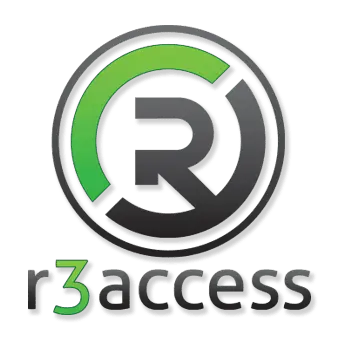If you think that security barriers and gates are only about locking and unlocking doors, you may require another re-examination. The way access is handled nowadays, particularly in the context of a scattered workforce, or even a hybrid workforce, has turned everything upside down. It is an era where cloud access control systems are not just convenient technology to have but rather an essential tool that keeps companies operating smoothly, safely, and efficiently.
Telecommuting is no longer about laptops and the internet. It concerns who is allowed to get in, who is not, and how this decision arrives miles away without a person standing physically at a gate or a front desk. Cloud-based access control systems come in exactly at the point where they are needed.
Why Remote Workforce Management Needs Smarter Access Control
Managing remote teams used to mean juggling spreadsheets and endless calls. But when people started working from home or anywhere, security got complicated.
Think about it: offices aren’t always full anymore. Some employees might show up once a week, contractors come and go, and managers may need to approve access while they’re hundreds of miles away. Traditional keys and cards just don’t cut it in that setup.
Cloud access control systems solve this problem beautifully. It has everything, permissions, schedules, and even visitor access live in the cloud. You don’t need to be n-site to manage who can enter the facility. It’s all done from a web dashboard or an app.
You can:
- Grant or revoke access instantly.
- Track entry and exit logs in real time.
- Get notified if someone tries to get in when they shouldn’t.
It’s remote management at its best: security, visibility, and control without the commute.
From Hardwired to Cloud: A Quick Look Back
At R3 Access, we’ve seen every kind of system evolve from wired, wireless, and now to cloud-based.
Back in the day, most access control systems were hardwired, meaning every connection ran through cables and power lines. Reliable? Sure. But flexible? Not really. Installing or updating them was a nightmare.
Then came wireless systems, that changed the game. They used the internet, Ethernet, or cellular networks to send data and control gates or doors remotely. Suddenly, you didn’t have to dig trenches for data cables.
And now, we’ve reached the era of cloud-based access control systems, the most flexible, scalable, and remote-friendly option yet.
When you go cloud, all your access control data sits safely in massive, secure data centers ( “cloud”). That means less local hardware, fewer system failures, and easier updates.
How Cloud Access Control Supports Remote Workforces
Here’s how these systems make remote workforce management smoother, safer, and smarter.
1. Centralized Control From Anywhere
Whether you’re sitting in an office, your car, or on another continent, you can control access points in real time. Need to give temporary entry to a contractor? Just a few clicks. Someone lost their access card? Disable it instantly.
2. No Onsite Admin Required
With a cloud system, you don’t need a person sitting in front of a panel all day. You can manage multiple buildings, gates, or even different cities from one centralized dashboard.
3. Stronger Security Through Data
Cloud access systems store activity logs, so you always know who entered, when, and where. That’s huge for compliance and safety. Some systems even send real-time alerts for suspicious activity.
4. Integrations with Security Barriers and Gates
Cloud-based solutions don’t replace physical barriers; they enhance them. Gates, turnstiles, and doors can all connect to the same control platform, giving you a unified system that’s simple but powerful.
5. Cost-Effective & Scalable
Traditional wired systems get expensive fast. Every expansion or change means more cables, more labor, and more headaches. Cloud systems? Add new users or sites without ripping up walls.
Real-World Example: Property Management Made Simple
Imagine a property manager who oversees ten apartment buildings spread across Houston. Without cloud access, managing all those entry points would be chaos. But with a cloud-based system, they can monitor and control every door, gate, and visitor call box from a single app.
Residents can unlock gates from their phones. Visitors show up, call from the directory, and the resident sees them live through the video intercom before allowing entry. Everything’s logged, secure, and efficient.
This kind of tech isn’t just futuristic; it’s happening right now. And R3 Access helps connect property managers, contractors, and businesses with manufacturers that make this possible.
The Tech Behind It: Our Partner Manufacturers
We’re proud to work with some of the most respected names in the access control world. These are the companies building the systems that make remote management possible:
LiftMaster – The Trusted Brand for Gate and Access Control
LiftMaster has built its reputation on smart, UL325-certified safety systems. Their gate and door openers put control right in the hands of property owners and managers. From swing and slide gates to commercial door operators, LiftMaster has engineered products for every environment, residential or commercial.
DoorKing – The Veteran of Access Control
DoorKing has been around for 75 years, constantly innovating with computer and cloud-based systems. They build everything from telephone entry systems and keypads to maximum security gate operators. Their presence is everywhere, from gated communities to corporate campuses.
CellGate – Wireless Access from the Ground Up
CellGate never made wired systems; they’ve always been wireless-first. Their cloud-based access technology allows businesses to manage entry remotely, track user credentials, and see live streaming video of visitors. They’re all about cloud, connectivity, and real-time control.
Viking Access Systems – Smart, Self-Learning Gate Operators
As part of the FAAC family, Viking Access specializes in advanced, efficient gate operating systems. Their equipment features self-learning algorithms, redundancy protection, and top-tier safety certifications. It’s an innovation that actually listens to user feedback.
These manufacturers set the benchmark for reliability and performance. And together, they represent the backbone of what R3 Access delivers: smart, connected, and secure access solutions.
Benefits Beyond Just Security
Cloud-based systems make things more secure but they also boost efficiency, convenience, and peace of mind.
- For remote teams: No more waiting for someone to “let you in.” Everything’s managed digitally.
- For businesses: Reduce downtime, travel, and maintenance costs.
- For property owners: Monitor activity 24/7 without being physically present.
Cloud-based systems simplify life while keeping things locked tight.
When Do Cloud Systems Make the Most Sense?
Cloud access control isn’t one-size-fits-all. It’s ideal for:
- Companies with multiple locations or hybrid work models.
- Property managers oversee several residential or commercial sites.
- Institutions like hospitals or schools need flexible but strict control.
- Businesses with remote IT or security staff.
If you’re managing a single, small building that rarely changes staff or tenants, a wired or standalone system might still make sense. But once scale or flexibility enters the picture, the cloud becomes the clear winner.
Planning Your Next Access Control Upgrade
Before you jump in and order a system, check your blueprints and electrical specs. Some access systems require more power than you’d expect or need specific network setups to work flawlessly.
At R3 Access, our team can review your plans to make sure your system is compatible and save you from expensive change orders later.
Need to confirm power source details or system requirements? Ask us first. It’s better to get it right before you buy.
The Bottom Line
It is not a small task to manage security and access in a remote or hybrid world. Still, it does not necessarily have to be a headache either. You can have full visibility, real-time control and peace of mind with cloud-based access control systems, all without leaving your laptop or phone.
R3 Access collaborates with the most renowned manufacturers in the industry, including LiftMaster, DoorKing, FAAC, CellGate, and Viking Access, to provide technology that has helped to ensure that properties remain secure and yet accessible anywhere.
It could be a business compound, a secure estate, or an expansive industrial property, and in any of the cases, modern access control security barriers and gates offer you the power and flexibility to do so, which old-fashioned systems cannot.
Ready to make the move to smarter, cloud-based security?
Visit R3 Access to explore wired, wireless, and cloud-based access control options that fit your needs.
FAQs
1. What’s the main advantage of cloud-based access control over traditional systems?
The biggest perk is remote management. You can control, update, and monitor your entire security system from anywhere; no need for on-site servers or manual updates.
2. Can cloud access control systems integrate with existing gates and barriers?
Yes. Most modern systems are designed to integrate with existing hardware like swing gates, barriers, and door operators. Compatibility depends on your current setup, which our team can help review.
3. Are cloud-based systems secure enough for sensitive facilities?
Absolutely. Cloud systems use advanced encryption, secure data centers, and regular software updates to maintain high-level protection against breaches.
4. What happens if the internet goes down?
Most systems are built with backup options, such as local caching or cellular data connections, to keep access functional even during short outages.
5. How do I know which type of access system wired, wireless, or cloud is right for me?
It depends on your property size, infrastructure, and how much remote control you want. R3 Access will connect you with the best companies that specialize installing and servicing the products we Distribute.


